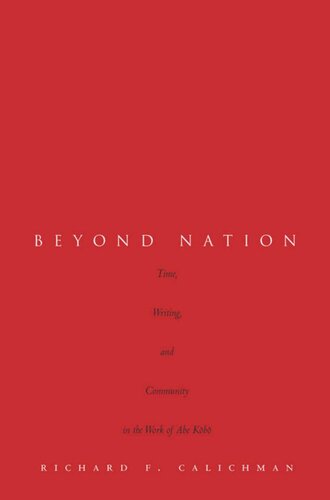

Most ebook files are in PDF format, so you can easily read them using various software such as Foxit Reader or directly on the Google Chrome browser.
Some ebook files are released by publishers in other formats such as .awz, .mobi, .epub, .fb2, etc. You may need to install specific software to read these formats on mobile/PC, such as Calibre.
Please read the tutorial at this link: https://ebookbell.com/faq
We offer FREE conversion to the popular formats you request; however, this may take some time. Therefore, right after payment, please email us, and we will try to provide the service as quickly as possible.
For some exceptional file formats or broken links (if any), please refrain from opening any disputes. Instead, email us first, and we will try to assist within a maximum of 6 hours.
EbookBell Team

0.0
0 reviewsIn the work of writer Abe Kōbō (1924–1993), characters are alienated both from themselves and from one another. Through close readings of Abe's work, Richard Calichman reveals how time and writing have the ability to unground identity. Over time, attempts to create unity of self cause alienation, despite government attempts to convince people to form communities (and nations) to recapture a sense of wholeness. Art, then, must resist the nation-state and expose its false ideologies.
Calichman argues that Abe's attack on the concept of national affiliation has been neglected through his inscription as a writer of Japanese literature. At the same time, the institution of Japan Studies works to tighten the bond between nation-state and individual subject. Through Abe's essays and short stories, he shows how the formation of community is constantly displaced by the notions of time and writing. Beyond Nation thus analyzes the elements of Orientalism, culturalism, and racism that often underlie the appeal to collective Japanese identity.